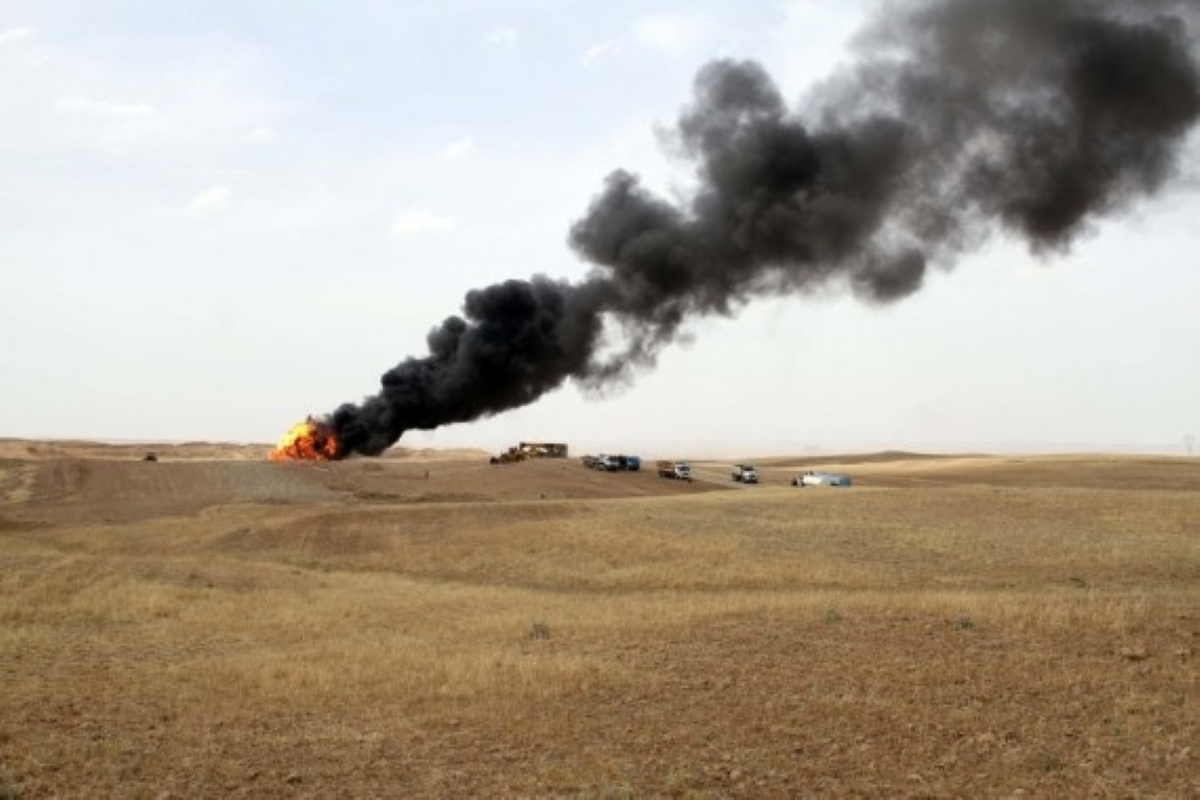Stadium ban for women to be reintroduced in Iran
A stadium ban for women is to be reintroduced in Iran, multiple local news reports said on Wednesday.
Iran has struggled to fill in the gap left in the absence of Soleimani and al-Muhandis, who were commanding figures able to push factions into line and resolve disputes among them

IANS
Iran’s expeditionary Quds Force commander brought one main directive for Iraqi militia faction leaders long beholden to Tehran, when he gathered with them in Baghdad last month: Maintain calm, until after nuclear talks between Iran and the United States.
But he was met with defiance. One of the six faction leaders spoke up in their meeting: They could not stay quiet while the death of his predecessor Qassim Soleimani and senior Iraqi militia commander Abu Mahdi al-Muhandis in a U.S. drone strike went unavenged.
Militia attacks have only been increasing against the U.S. in military bases in both Iraq and Syria. Three missile attacks in the last week alone resulted in minor injuries, stoking fears of escalation.
Advertisement
Iran now relies on Lebanon’s Hezbollah for support in reining them in, and there is potential that Iran’s new president could play a role in doing the same.
The officials spoke on condition of anonymity to discuss the private meetings.
Iran’s influence, sustained by ideological ties and military support, has frayed because of the U.S. killing of Soleimani and al-Muhandis last year, because of differing interests and because of financial strains in Tehran.
With nuclear talks restarting following U.S. President Joe Biden’s inauguration this year, these differences have come to the fore.
“Iran isn’t the way it used to be, with 100 per cent control over the militia commanders,” said one Shiite political leader.
Increasing rocket and drone attacks targeting American troops in Iraq and Syria have alarmed Western and coalition officials. There have been at least eight drone attacks targeting the U.S. presence since Biden took office in January, as well as 17 rocket attacks, according to coalition officials.
The attacks are blamed on the Iranian-backed militias that make up the bulk of Iraq’s state-supported Popular Mobilization Forces.
The loudest of the defiant militia voices has been Qais al-Khazali, leader of the Asaib Ahl al-Haq faction, which also maintains a political party.
On 17 June, only days after Ghaani’s meetings with the militias, he said in a televised address that they would continue to target the U.S. “occupier” and that they will not take into consideration nuclear talks.
The coalition has formally ended combat operations and reduced troop levels significantly in the last year. Only 2,500 U.S. troops remain in Iraq.
Some argue the ongoing attacks benefit Iran by maintaining pressure on the U.S.
During talks with Shiite political officials during his visit, Ghani said Iran doesn’t interfere in their political work, but that military matters were different. “These must be approved by the Revolutionary Guard,” one political leader recounted him saying.
Still, Ghani did not reprimand the militia groups during the meeting. Instead, he told them he understood their concerns.
Iran has struggled to fill in the gap left in the absence of Soleimani and al-Muhandis, who were commanding figures able to push factions into line and resolve disputes among them.
“Ghaani has a different style and capabilities,” said Michael Knights, a fellow at The Washington Institute. He has a looser framework, establishing broad red lines on some matters, while “other things are ’don’t ask, don’t tell,” he said.
Along with asking for less, cash-strapped Iran has been giving less as well. Assistance to the groups has been significantly downgraded since U.S. sanctions began crippling Iran’s economy last year.
Divisions among factions have deepened, with growing competition among militias and Shiite politicians.
Ghaani came to meet the militia leaders to mend tensions that were sparked weeks earlier when Iraqi authorities arrested a paramilitary commander, Qassim Musleh, prompting a standoff between PMF fighters and security forces. Ghaani brought a letter from Iran’s supreme leader, Ali Khamenei, criticizing the PMF for its reaction, saying it weakened their position.
Advertisement